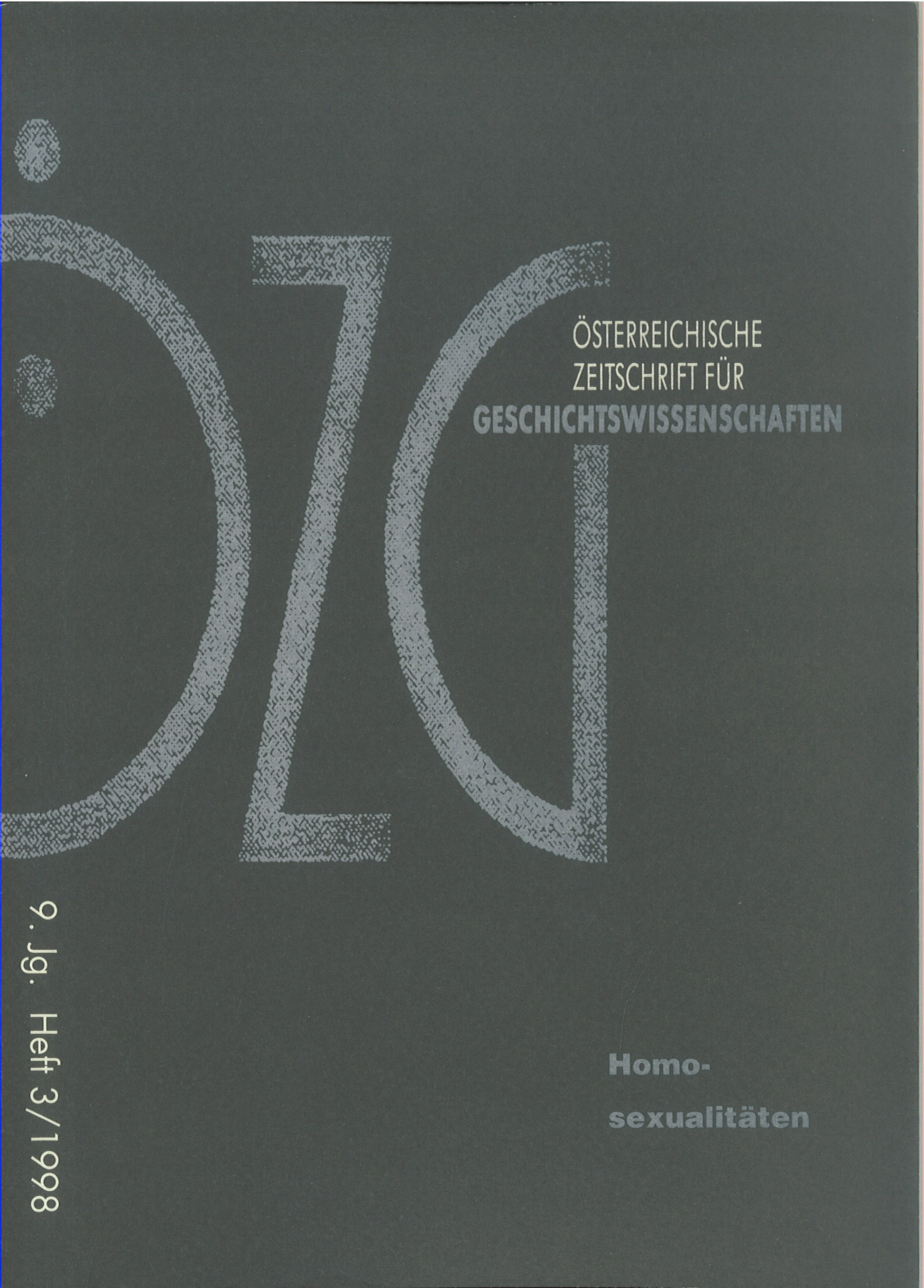„Plato war doch gewiss kein Schweinehund“
Richard von Krafft-Ebing und die homosexuelle Identität
DOI:
https://doi.org/10.25365/oezg-1998-9-3-4Abstract
As the author of the famous Psychopathia sexualis (1886), the German-Austrian psychiatrist Richard von Krafft-Ebing (1840-1902), played a key role in the medical construction of the modern concept of (homo)sexuality. The creation of homosexual subjects cannot be seen as the result of medical interference alone. Medicalization has to be viewed as a process in which new rneanings were attached to existing behaviors, feelings and senses of self-understanding. Case histories and the autobiographies of Krafft-Ebing's patients indicate that these new rneanings were developed within the context of existing social practices and with the active involvernent of the people concerned. Patients often furnished psychiatrists with the life stories and sexual experiences upon which rnedical explanations were founded.


